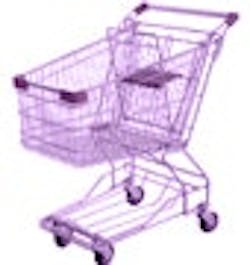Products Versus Services
Machine builders mostly sell products, but services are the holy revenue grail for many of them because services carry higher margins.
System integrators mostly sell services, but product sales are highly desired because they generate a steadier stream of income with less risk.
Lets focus on system integrators that primarily sell services to machine builders. Many of these integrators also garner some of their revenue from product sales, and we will compare products versus services from a system integrator perspective.
The OEM Insight column on the back page this month is written by system integrator Concept Systems. Concepts main line of business is selling services in the form of custom projects, but they also develop and sell products.
They explain why they chose to get into the product business and how, in their view, products compare to services. The column agrees with some of the points Ill make here and also makes some new and different observations.
System integrators that serve machine builders get most of their revenue from services, but many integrators develop and sell products as discrete and somewhat standard items. Customization often is required, but in general products are standard items modified as needed per customer requirements.
Services are sold as fixed-price projects or on a time-and-material basis. Fixed-price projects are customized for each client, are risky, but can be very high margin. Services sold on a time and material basis are standardized, low risk, and carry lower margins.
Lets compare and contrast fixed-price custom projects with products. For most products, purchasers have substitutable options. This makes it possible for customers to compare prices and it tends to drive down margins. An exception is products with proprietary and especially patented technologies that can not be easily duplicated by competitors. These products have very high but usually short-lived margins as patents expire and as competitors figure out ways to reverse-engineer proprietary technologies.
System integrators like the high margins of fixed-price custom projects, but most would like to reduce the three main risk components inherent in projects.
The first is cost and schedule overruns. Cost and schedule estimates for custom projects are educated guesses. Actual results often vary widely from initial expectations.
The second risk is performance. Custom projects cant be proven to work until installation and startup. Fixing performance issues in the field can blow a project budget quickly.
The third risk component is unpredictability of overall firm income. A system integrator living on a few large fixed-price contracts can see its sales drop precipitously if new projects are not brought in on a timely basis.
A drop in sales for a people-intensive business like system integration services forces immediate layoffs because personnel expenses make up most of the firms variable costs.
So to reduce the risks inherent to service sales, many system integrators develop products. Although most products have lower margins than fixed-price custom projects, they address and reduce all of those main risks inherent to projects.
Product costs are known up-front, so margins are more consistent. Predicting product delivery times is easier than forecasting project schedules because the product has been made before while the custom project is unique.
Product performance can be tested prior to shipment, greatly reducing the need for expensive field fixes. Product revenue streams tend to be more predictable, and drops in product sales can be often be primarily met by cutting material as opposed to personnel costs.
Perhaps the best option for many system integrators is combining custom fixed-price projects with products to get the high margin benefits of projects and the lower risk of products.
Next month, well look at how and why machine builders create service revenue to supplement their main line of business, machine sales.



